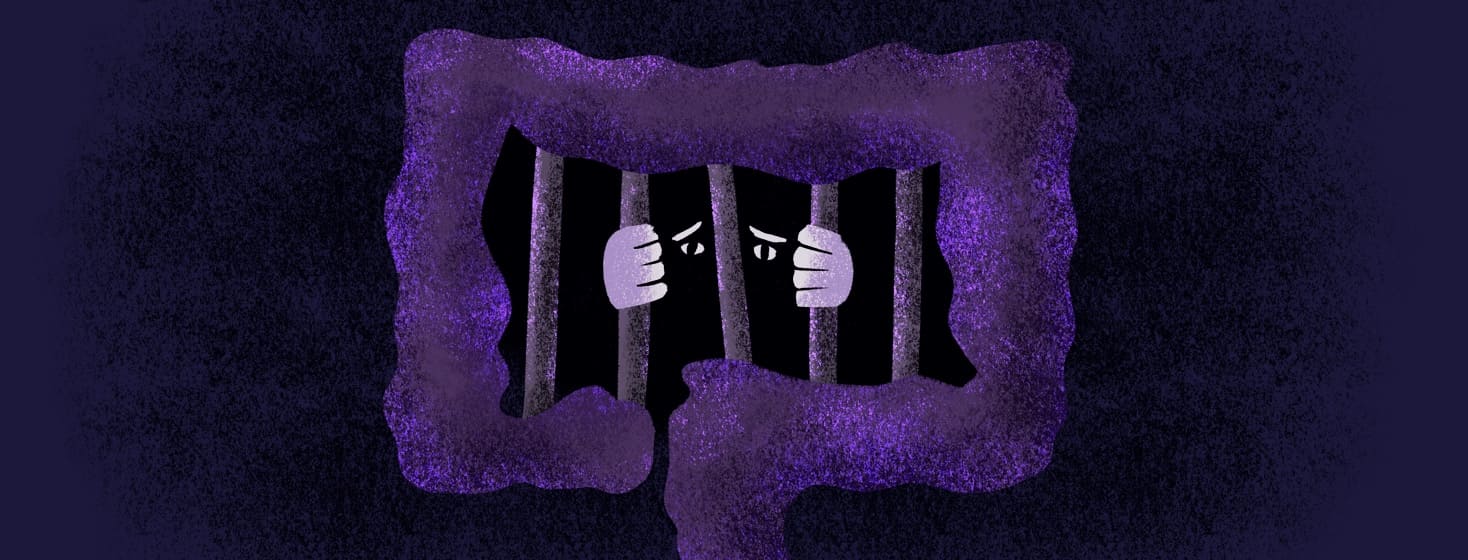Coping with UC Flare-Ups
Each year we ask people with inflammatory bowel disease, including ulcerative colitis, to tell us about their lives in the IBD In America survey. For the 2019 survey, 1,705 people responded and told us about their quality of life, relationships, ongoing symptoms, other health conditions, interactions with their medical team, and more. They also talked to us about how they cope with UC flare-ups. Here’s what they had to say.
Frequency of flare-ups
Ulcerative colitis flares can be challenging to manage, especially if a hospital stay is required. For the survey overall, four in 10 reported five or more flares in the past year that lasted several weeks or longer.
Among those with UC, 28 percent said they had two to four flares in the last year with only 3 percent saying they had none. An unfortunate group of 17 percent of those with UC reported more than 10 flares over the last 12 months.
The duration of UC flares tended to last the same or longer amounts of time compared to people with Crohn’s and other types of IBD. In fact, survey respondents with ulcerative colitis were the least likely to suffer short-term flares of less than one week. They were also the most likely among those surveyed to have flares lasting between three and six months:
- Less than 1 week - 10 percent
- 1 to 2 weeks – 19 percent
- 2 to 4 weeks – 18 percent
- 1 to 3 months – 18 percent
- 3 to 6 months – 11 percent
- 6 months or longer – 16 percent
What happens during a UC flare?
The most common physical symptoms mentioned in the IBD In America survey were weight loss, and an increase in symptom frequency and severity, including:
- Abdominal pain and cramping
- Uncontrollable diarrhea
- Fatigue
- Bloody stool
- Urgency
- Accidents
- Nausea and vomiting
How a flare feels
The emotional impact of flares cannot be underestimated. While each person is different, most reported fear, anxiety and worry about leaving the house and having accidents or “wet farts.” Depression, anger, embarrassment, and frustration were also common.
“When I'm flaring, my perspective on my body and my identity shifts. I feel run-down, defeated, weak, and flawed. It's hard not to make comparisons between myself and my peers. I think that IBD and chronic illnesses still have a stigma that can cause negativity, fear, and resentment. As a result, it's easy for me to fall into a pit of self-doubt. I worry about my health and my image. I feel dirty and flawed. Most of all, I just feel different. My standards between who I am when I am healthy and when I am sick are warped. All in all, it's challenging during a flare because there's a mismatch between my mind and my body. I feel stuck, sick, and trapped.” – UC Patient
Coping tactics for UC flares
Among those surveyed, the most popular ways to cope with the flares of ulcerative colitis were:
- Avoid foods I love - 69 percent
- Eating smaller meals - 59 percent
- Taking vitamins/probiotics - 47 percent
- Binge my favorite TV show - 37 percent
- Vent to friends - 35 percent
- Visit on online support group or community - 33 percent
- Faith/spirituality - 27 percent
- Exercise - 20 percent
A third of people with UC report using a combination of tactics that included medication, rest, sleep, crying, yoga, and eating a special diet or not eating at all. Compared to people with other forms of IBD, those with UC were more likely to take vitamins and probiotics and less likely to rely on their faith.
Less common coping techniques among the survey respondents included meditation, CBD oil, medical cannabis, shopping, screaming into a pillow, writing/blogging, acupuncture, and anger management classes.
The IBD In America 2019 online survey gathered insights from individuals diagnosed with various types of IBD to better understand their diagnosis and treatment, as well as the impact on their lives. We’re thankful to have each and every one of you as a part of our community!

Join the conversation